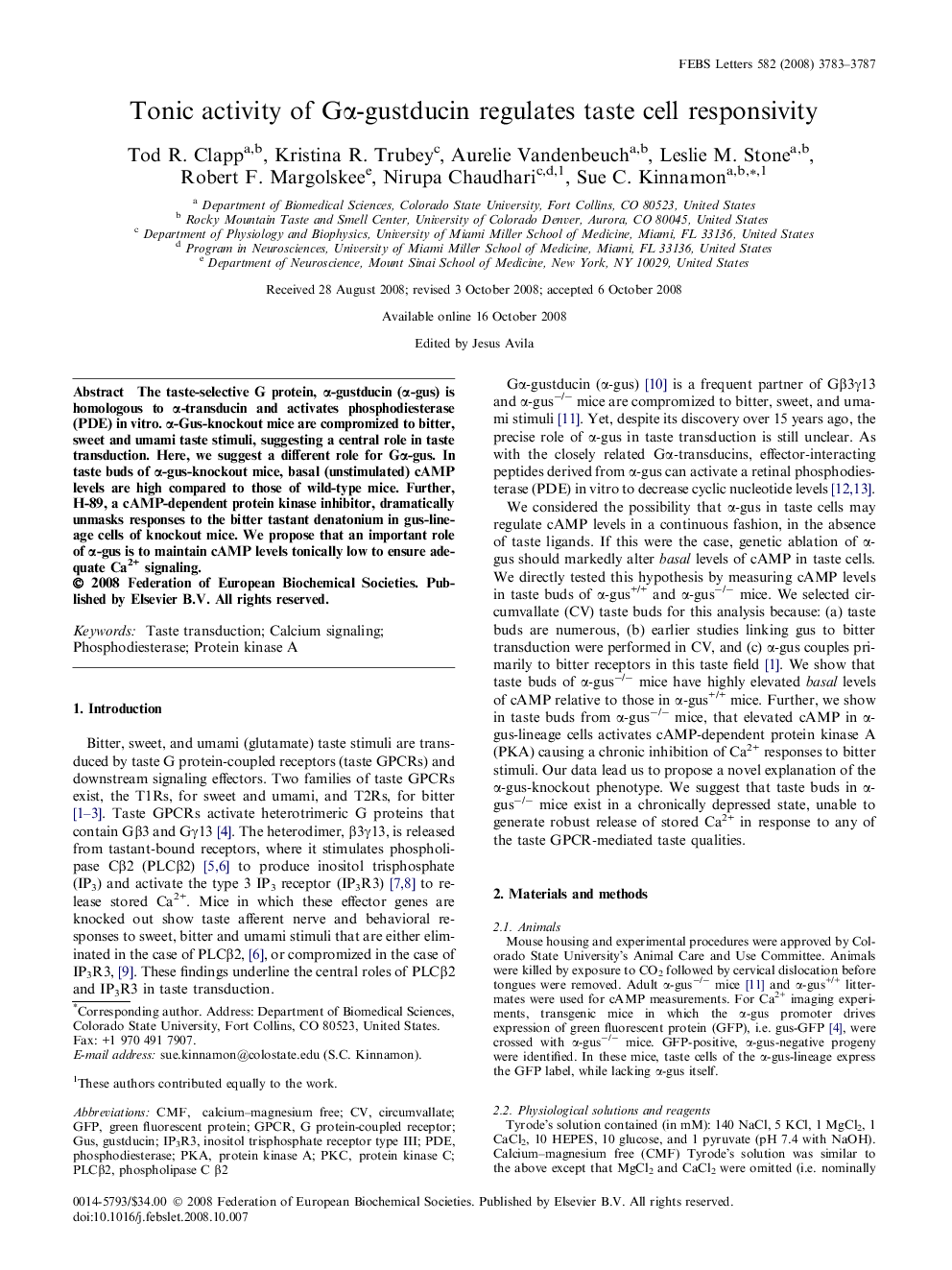| Article ID | Journal | Published Year | Pages | File Type |
|---|---|---|---|---|
| 10872499 | FEBS Letters | 2008 | 5 Pages |
Abstract
The taste-selective G protein, α-gustducin (α-gus) is homologous to α-transducin and activates phosphodiesterase (PDE) in vitro. α-Gus-knockout mice are compromized to bitter, sweet and umami taste stimuli, suggesting a central role in taste transduction. Here, we suggest a different role for Gα-gus. In taste buds of α-gus-knockout mice, basal (unstimulated) cAMP levels are high compared to those of wild-type mice. Further, H-89, a cAMP-dependent protein kinase inhibitor, dramatically unmasks responses to the bitter tastant denatonium in gus-lineage cells of knockout mice. We propose that an important role of α-gus is to maintain cAMP levels tonically low to ensure adequate Ca2+ signaling.
Related Topics
Life Sciences
Agricultural and Biological Sciences
Plant Science
Authors
Tod R. Clapp, Kristina R. Trubey, Aurelie Vandenbeuch, Leslie M. Stone, Robert F. Margolskee, Nirupa Chaudhari, Sue C. Kinnamon,
